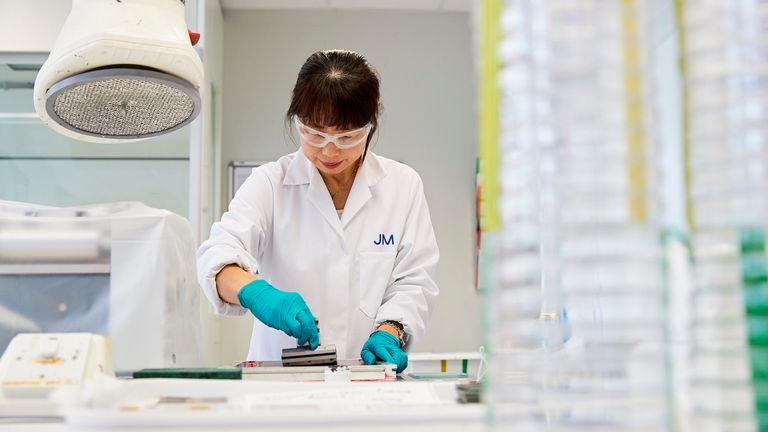Jobs at risk as Johnson Matthey plans to close battery materials division
UK industrial company Johnson Matthey plans to close its battery materials business, employing 430 people, after failing to find a buyer.
The announcement comes two months after JM said it was seeking to dispose of the business, killing off hopes for a British champion in a key industry in supporting the transition to electric vehicles.
That came as a surprise, just months after business secretary Kwasi Kwarteng had opened the company’s new state-of-the-art battery technology centre near Oxford.
In an update on the plan, JM said that discussions with a number of parties “have not resulted in an agreement to sell the entire business as a going concern”.
It added: “Consequently, we are announcing today that we are commencing consultation with our employees about our employees about our proposed closure of the battery materials business, and we are pursuing the sale of its individual assets.”
A spokesman said that “very considerably fewer” than 400 were ultimately expected to see their jobs affected as the company remained in talks to sell parts of the business to different parties while there would also be redeployment in other parts of the group.
Most of the staff in the battery materials business are based in the UK across offices in Billingham, on Teesside, Royston, near Cambridge, and at the technology centre near Oxford.
Others are based in Poland, Finland and Canada.
JM, which has a history of innovation, employs around 15,000 people overall.
The company had bet on growth in cathode materials – the most complex chemical component of car batteries – as it faced an expected decline in its main business supplying catalytic converters for cars as vehicles switch away from combustion engines.
But it decided to exit the business as it faced tough competition from bigger global rivals as well as slim returns.
JM has already taken a £314m hit as it wrote down the value of the division last year and expects to face a further £150m charge, including redundancy costs, as a result of full or partial closure.
Shares fell 4% on the announcement.
Source: Read Full Article




